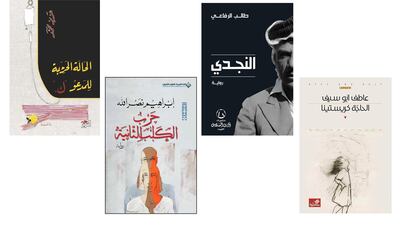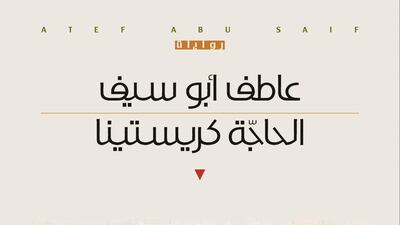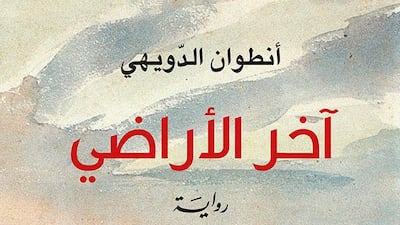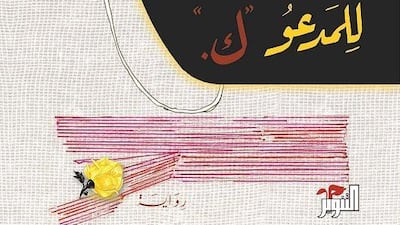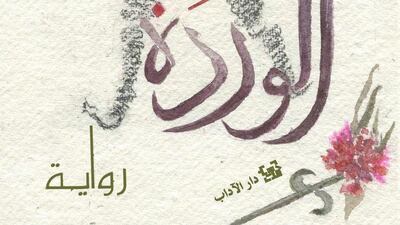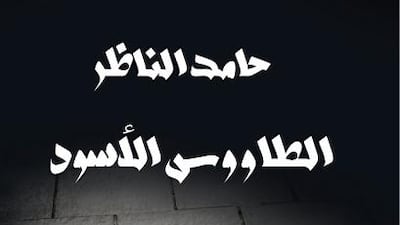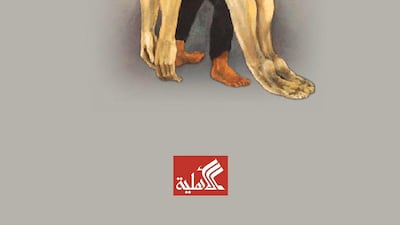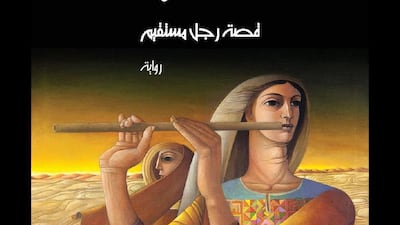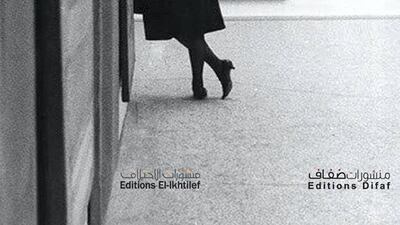The longlist for this year's International Prize for Arabic Fiction (IPAF) is packed with novels by well-known authors. Eight of the authors on the 16-book list have been previously longlisted for the prize, popularly known as the "Arabic Booker." Others, such as Jordanian poet and novelist Amjad Nasser, may be on the IPAF list for the first time, but have won many other accolades.
Longlisted novels include tales of Palestinian Arab volunteers during the Spanish Civil War; a generational novel about the Algerian revolution; futuristic revolutions in unnamed nations; the 2009 Israeli bombardment of Gaza; and the fall of Andalusia.
Popular Palestinian novelist Ibrahim Nasrallah makes his fourth appearance on an IPAF longlist with his futuristic narrative The Second War of the Dog. This is a sharp departure for Nasrallah, who has written 16 novels, with most set in different periods of Palestinian history. The first of Nasrallah's novels to be set in the future, The Second War of the Dog follows a one-time opponent of the futurist regime who transforms into a corrupt extremist.
Three other Palestinians have novels on the longlist, making them the largest presence. Gazan writer Atef Abu Saif was longlisted for his novel Christina. Abu Saif's A Suspended Life was shortlisted in 2015, and his beautiful memoir The Drone Eats with Me was published in English in 2016. The two other Palestinian novelists are Walid Shurafa, for Heir of the Tombstones, and Hussein Yassin, for Ali, the Story of an Honorable Man.
Other well-known novelists include prolific, multi-award-winning Sudanese author Amir Tag El-Sir, longlisted for his novel Flowers Consumed by Fire, and acclaimed Kuwaiti novelist Taleb Al-Refai, who was chair of judges for the 2010 International Prize for Arabic Fiction, and also launched his own literary prize, AlMultaqa, in 2016. Al-Refai's novel, Al-Najdi, follows the last hours in the life of Kuwaiti sea captain Ali Al-Najdi (1907-1979).
Although dominated by big names, the list is not without experiments by younger writers. There are two authors on the list with their debut novels: Saudi writer Aziz Mohammed and Iraqi novelist Shahad Al Rawi. Mohammed's novel, The Critical Case of K, was cited by Egyptian writer and critic Ahmed Naji as one of his favourite reads of last year. Naji called this Kafkaesque novel a break from the "history and boring realism" of much of Saudi literature.
Al Rawi, meanwhile, made the list with her The Baghdad Clock. This popular debut novel has already been translated into English by Luke Leafgren, and is set for an April release from Oneworld Books. Al Rawi's book, touted as a bestseller, is set in Baghdad in 1991. It follows two young best friends growing up in a city that is already being torn apart when a stranger arrives from the future to tell them of even worse to come.
Another longlist standout is young Syrian writer Dima Wannous, who was one of the "Beirut39," a list of the 39 most talented Arab writers under 40. Wannous, the daughter of great Syrian playwright Saadallah Wannous, is on the longlist with her novel The Frightened Ones, a book about reading a book about fear, the horror experienced twice over.
IPAF’s organisers revealed this year’s judges alongside the longlist, instead of waiting for the shortlist announcement. The judging chair this year is Jordanian academic Ibrahim Al Saafin, who is joined by Algerian writer Inam Bioud, popular Sudanese-British writer Jamal Mahjoub, acclaimed Palestinian short-story writer Mahmoud Shukair and Slovenian writer-translator Barbara Skubic.
The prize's shortlist is set be announced next month, with events being held in a city yet to be named. The winner, as every year, will be announced on the eve of the Abu Dhabi International Book Fair, which this year runs from April 25. Each of the shortlisted writers receives a US$10,000 (Dh36,730) award, with an additional $50,000 for the winner. The prize also supports translation of winning works into English, and two previous winners are set to appear in English translation this year. Ahmed Saadawi's Frankenstein in Baghdad, which was an IPAF winner in 2014, will be published in Jonathan Wright's translation this month by Penguin (United States) and Oneworld (United Kingdom). Rabai Al-Madhoun's 2016-winning book, Destinies: Concerto of the Holocaust and the Nakba, is set to be published, in Paul Starkey's translation, by Hoopoe Fiction in April.
______________
Read more:
Book review: Women’s stories and wordplay abound in Ibrahim Nasrallah's Gaza Weddings
Ibrahim Nasrallah challenges followers of Arab literature to reconnect with their emotions
______________
